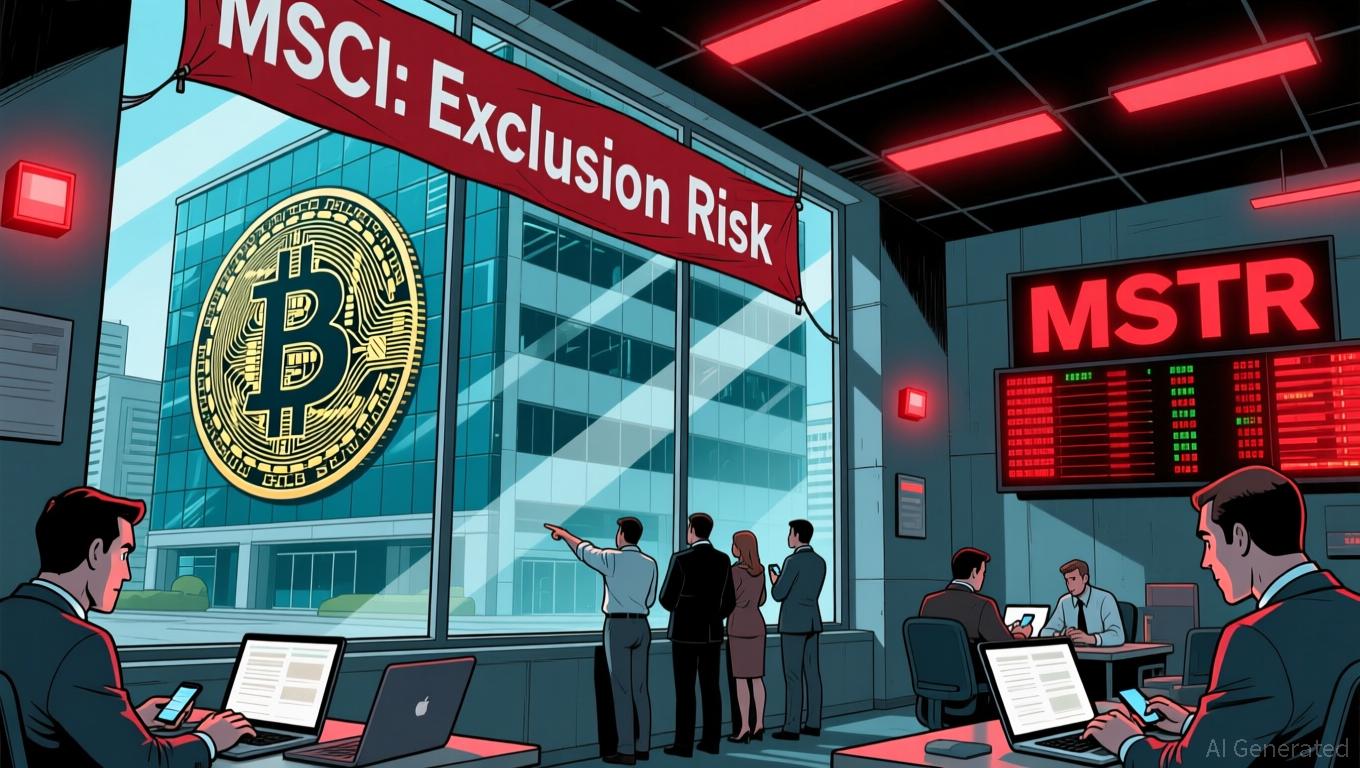ECB Cautions That Fluctuations in Tech and Crypto May Trigger a Market Crash Similar to 2000
- ECB warns U.S. tech and crypto volatility risks triggering a 2000-style market crash, citing sharp asset corrections and AI-driven valuation fragility. - ECB officials stress central banks must retain rate-cut flexibility amid rising risks, as crypto outflows and equity inflows highlight market divergence. - JPMorgan analysis flags crypto panic-selling risks spilling into broader systems, while MSCI warns a 63% sector collapse could follow AI confidence loss. - ECB and BIS caution stablecoin growth threa
The European Central Bank (ECB) has issued a warning about escalating threats to global financial stability, cautioning that abrupt downturns in U.S. tech shares and the cryptocurrency sector could spark a crisis similar to the dot-com crash of 2000. Alvaro Santos Pereira, a member of the ECB's Governing Council and head of Portugal's central bank, stressed the importance of central banks maintaining the ability to swiftly lower interest rates should turmoil arise. His comments come at a time when

Central banks are also contending with the expansion of stablecoins, which have come under scrutiny for their potential to disrupt established financial systems. Lorenzo Bini Smaghi, a former ECB executive board member, warned that Europe’s slow progress in launching euro-based stablecoins
The Bank for International Settlements (BIS) has voiced similar concerns, warning that
With markets awaiting ECB President Christine Lagarde’s forthcoming address,
Disclaimer: The content of this article solely reflects the author's opinion and does not represent the platform in any capacity. This article is not intended to serve as a reference for making investment decisions.
You may also like
Bitcoin Updates Today: Leverage and ETF Withdrawals Drive the "Major Crypto Collapse of 2025"
- Bitcoin plunged to $80,600 in November 2025, marking its worst monthly drop since 2022, with $1.2T in market value lost. - The "Great Crypto Crash" was driven by ETF outflows, leveraged liquidations, and global risk aversion, dragging Ethereum and altcoins to multi-month lows. - Structural factors like $19B in October leveraged losses and $3.8B ETF outflows amplified the downturn, while macro risks like Fed policy uncertainty worsened sentiment. - Analysts remain divided: some see institutional BTC hoard

Bitcoin News Today: Bitcoin Index Face-Off: Saylor Challenges Convention, Ignites Market Fluctuations

Solana's Latest Rally and Price Forecast Driver: Blockchain Integration and Endorsement by Institutions
- Solana (SOL) sees $12.1B TVL in Q3 2025, driven by DeFi growth and institutional adoption despite mid-November volatility. - Institutional validation grows via ETFs (Bitwise, Grayscale) and partnerships like Western Union's remittance pilot leveraging Solana's speed. - Price analysis shows $178 support holding, with $190-$195 resistance targets as DeFi TVL growth and staking yields (6.82%) attract capital. - Validator efficiency improvements and real-world use cases position Solana as a scalable blockcha

Bitcoin News Update: Removal from Index May Undermine MSTR’s Bitcoin-Based Strategy
- JPMorgan warns MSTR faces $8.8B in forced selling if MSCI excludes it from indices due to 50%+ digital asset threshold. - MSTR's stock dropped 67% since November 2024 peak as its valuation increasingly aligns with Bitcoin holdings (mNAV ~1.1). - CEO Saylor defends MSTR as "Bitcoin-backed enterprise," but critics argue its financial model lacks sustainability outside benchmarks. - Retail backlash against JPMorgan intensified, with figures like Grant Cardone closing accounts amid short-selling allegations.
